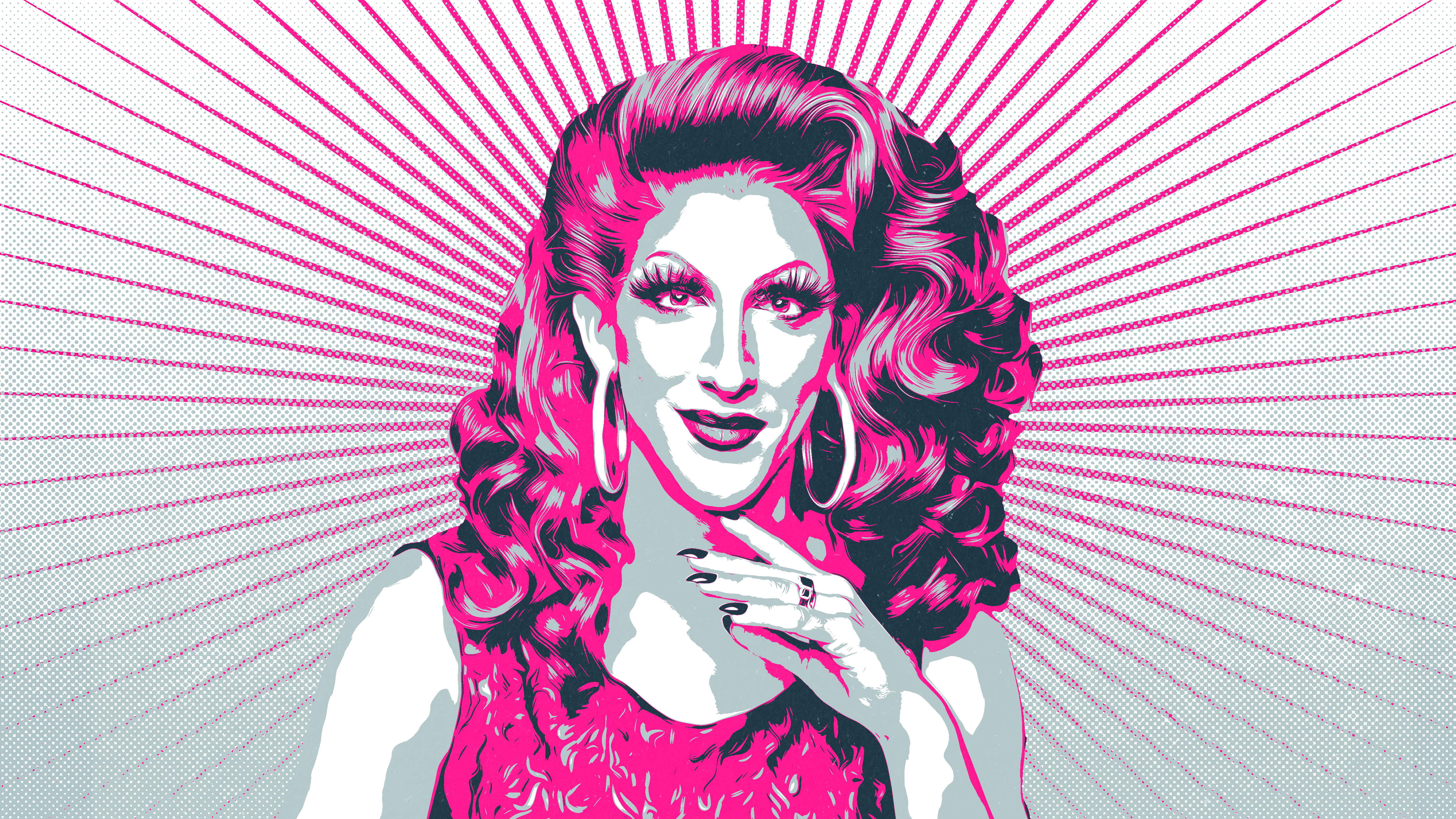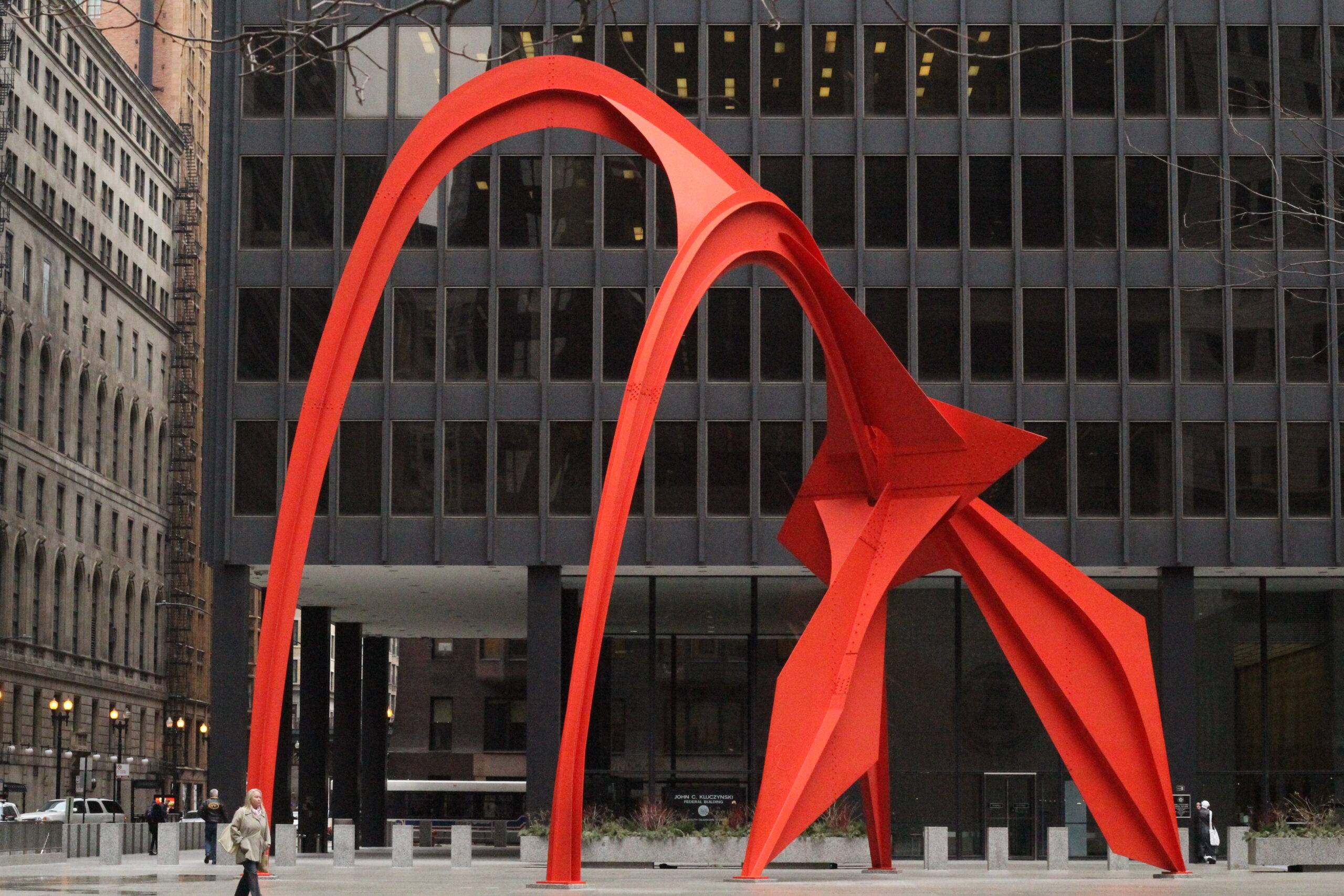
From an audience of 15,000 at Barclays Center to 20 people at a “tiny hole in the wall bar,” drag artist and political activist Marti Gould Cummings has performed in venues across the country. Marti loves drag as an art form “because there’s no defining box of what drag is. You can be a performer who dances, lip-syncs, sings, does spoken word or storytime, or more adult-themed shows. You can really take your art form and use it in a wide variety of ways. You can make it your own each day.” This flexibility and opportunity for drag has proven true for Marti, who in 2022 was invited to attend President Joe Biden’s signing of the Respect for Marriage Act, and, in 2021, ran for the New York City Council.
But their path didn’t begin in the spotlight.
Marti grew up on a family farm near the Eastern shore of Maryland and attended Catholic schools. Even before moving to New York City at the age of 17, Marti’s journey was in continuous evolution. “I knew there was something different about me, but didn’t have the language for it,” says Marti. “When I was a teenager, I came out as gay.”
Now, Marti identifies as non-binary and queer, because it’s “the language that I felt fit me the most. ‘Queer’ encapsulates how I feel as somebody not on the normal two-gender spectrum that society has in place.” Although their two identities (drag and gender) “do get a little blurred,” Marti sees a very clear distinction: “My gender is who I am, and my drag persona is what I do. One is my job, and one is my life.”
Marti started performing “before Drag Race was a huge, huge, huge, like, international phenomenon. There were maybe five or six bars in New York City that hired drag artists, and maybe ten full-time working drag performers.” Now, however, the market is entirely different. “There’s hundreds of venues, queer venues, straight venues, hiring drag artists, and there’s hundreds of drag performers.” At one point, early in their career, Marti’s future was in peril: “I was a drunk mess and got fired from everything but one gig. Now, I’ve been sober for almost twelve years. The majority of my drag career has been in sobriety, which has been a real blessing because I’m able to have a clear head and approach it as a business.”
That clear head has worked for Marti, who has performed under their own name, much like RuPaul, for 15 years now.
Queer venues have been important to Marti, whether experimenting as a performer or growing as a person. Although RuPaul’s Drag Race brought drag into the mainstream, where now even non-LGBTIQA+ venues hire drag artists, Marti still sees an imperative need for queer clubs and venues, “especially when, since January, 22 different states have introduced over 100 pieces of anti-LGBTQ legislation. There’s trans women of color being murdered all the time. Drag Story hour being attacked by the Proud boys. So we absolutely need our career safe spaces because there are still many places in this world where we’re not safe.”
The problem Marti describes is so pronounced that the American Civil Liberties Union has created an online dashboard: “Mapping Attacks on LGBTQ Rights in U.S. State Legislature.” From gender identity on birth certificates to employment discrimination, book bans, access to healthcare, and more, legislatures from Oregon to South Carolina to New Hampshire are moving bills which challenge LGBTQIA+ rights across a number of issues.
In light of this, the need for queer clubs and safe venues becomes clear. “It’s a place where we can be unapologetically ourselves and not have to look over our shoulder or worry,” says Marti. “We’re allowed to hold hands, allowed to kiss, allowed to enjoy a show. That’s something that’s available. We’re allowed to do things without the fear of repercussions, of having a hate crime happen to us.”
The threat feels very real. “The right-wing is using old talking points of calling queer people, trans people, drag artists, as groomers and pedophiles and stoking the flames in that way because they have nothing else to stand on,” says Marti. “So they’re using all the tropes, dangerous tropes to vilify, and it’s working. And so I think it’s a really dangerous time in America, even with all the progress we’ve made, there’s still a lot of really awful stuff happening. Clearly safe spaces are incredibly important.”
If historically safe spaces are no longer safe, what does that mean for the LGBTIQA+ community? This is, perhaps, one reason why shootings at places like Club Q and Pulse feel particularly personal. As Richard Kim wrote in The Nation, after the shooting in Orlando, Florida, at Pulse in 2016, “Gay bars are more than just licensed establishments where homosexuals pay to drink. Gay bars are therapy for people who can’t afford therapy; temples for people who lost their religion, or whose religion lost them; vacations for people who can’t go on vacation; homes for folk without families; sanctuaries against aggression.”
Marti wishes that mainstream America understood not only why we have Pride, but “why it’s important that we have places where we can go to be ourselves. I wish more Americans would recognize that they most likely have a loved one who identifies under the LGBTIQA+ umbrella and to stop voting for people who are trying to eradicate us.”
The LGBTIQA+ community also has a responsibility to keep queer spaces safe, according to Marti. “Even within our clear spaces, we have to do the work of antiracism and rooting out misogyny. There’s a lot of gay people who are transphobic, racist, and misogynistic. We as a community have to come together and look out for one another,” says Marti. “It’s having those difficult conversations and educating people on what it is to be anti-racist and what it is to break down what misogyny and transphobia looks like and identifying it and calling it out when you see it. Maybe you don’t know you’re doing microaggressions. Really take the time to listen and then implement the change and do the work on yourself.”
This need is what pushed Marti further into activism. They’d already been involved with Broadway Impact and the Ali Forney Center. Then, Marti had a conversation with the owner of a bar where they performed. According to Marti, the bar owner was uncomfortable with a part of the performance that was against Donald Trump because “it might alienate some of our straight clientele.” Marti explains, “I said to myself, ‘if a straight man, who owns this venue, is profiting off queer people, voting against their needs, and more worried about the protection of straight people in a queer space than the queer people in it, that’s a problem.’”
So Marti quit. “It was a real light bulb moment for me,” they explain. “I have a microphone in my hand every single day. What am I using it for? Of course, I want to entertain and make people laugh. But also, I believe I need to use the platform.”
And what a platform. Once invited to attend a panel discussion on trans and nonbinary issues presented by the Human Rights Commission at the United Nations (UN), Marti, in full drag, asked a question of that panel. “Because of that, I was then invited by the UN to moderate my own panel on queer electability,” shared Marti. “I walked away with gratitude, like, to be a drag artist at the United Nations, walking down the hall, passing people who represent countries that would kill me for what I was wearing was really empowering.”
In 2021, Marti was also the first nonbinary candidate to run for New York City Council. Although they did not win the election, Marti doesn’t see it as a loss. “We had conversations with people that would have never talked about queer issues. We were able, as queer people, to identify issues that impact everyone, not just queer people, which was great for relatability. Young kids who had gone to conversion therapy and wanted to kill themselves volunteered for our campaign because they saw themselves represented for the first time. So that’s not a failure by any means.”
Marti’s love for drag and activism has been an unexpected adventure from queer bars to the United Nations. “I never thought my drag would take me here,” admits Marti, “but here we are. It’s something that could end at any time, so I don’t take it for granted.” But, perhaps the key to such an adventure is simple: “We’re constantly evolving and learning new things about ourselves. At least, I hope we are,” says Marti. “How boring would it be if we just kind of stay the same our whole lives?”
John W. Bateman (MFAW 2023) has a secret addiction to glitter and, contrary to his Mississippi roots, does NOT like sweet tea. After nearly 20 years in philanthropy, he left his Southern unicorn lumberjack shack and moved to Chicago.







